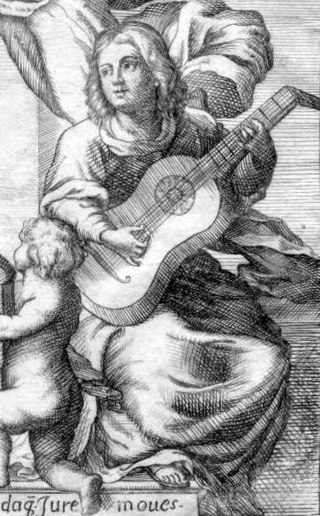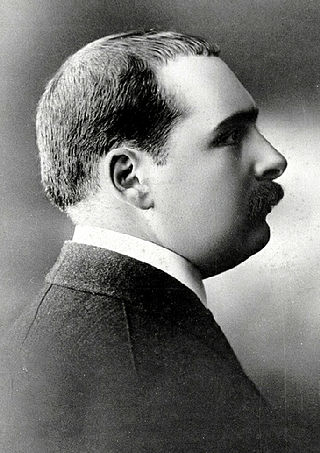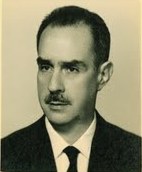Related Research Articles

Silvio Rodríguez Domínguez is a Cuban musician, and leader of the Nueva Trova movement.
Fernando Ortiz Fernández was a Cuban essayist, anthropologist, ethnomusicologist and scholar of Afro-Cuban culture. Ortiz was a prolific polymath dedicated to exploring, recording, and understanding all aspects of indigenous Cuban culture. Ortiz coined the term "transculturation," the notion of converging cultures.
The guaracha is a genre of music that originated in Cuba, of rapid tempo and comic or picaresque lyrics. The word has been used in this sense at least since the late 18th and early 19th century. Guarachas were played and sung in musical theatres and in working-class dance salons. They became an integral part of bufo comic theatre in the mid-19th century. During the later 19th and the early 20th century the guaracha was a favourite musical form in the brothels of Havana. The guaracha survives today in the repertoires of some trova musicians, conjuntos and Cuban-style big bands.

Francisco Bartolomé Sanz Celma, better known as Gaspar Sanz, was a Spanish composer, guitarist, and priest born to a wealthy family in Calanda in the comarca of Bajo Aragón, Spain. He studied music, theology and philosophy at the University of Salamanca, where he was later appointed Professor of Music. He wrote three volumes of pedagogical works for the baroque guitar that form an important part of today's classical guitar repertory and have informed modern scholars in the techniques of baroque guitar playing.
Fernando Ramón Martínez Heredia was a prominent Cuban revolutionary thinker and politician. Martínez was a founding member of the Cuban Communist Party, and as a member of the July 26 Movement, he took part in the Revolution which overthrow the Batista dictatorship.
Cuban folk music includes a variety of traditional folk music of Cuba, and has been influenced by the Spanish and the African culture as well as the remaining indigenous population of the Caribbean.
Cuban musical theatre has its own distinctive style and history. From the 18th century to modern times, popular theatrical performances included music and often dance as well. Many composers and musicians had their careers launched in the theatres, and many compositions got their first airing on the stage. In addition to staging some European operas and operettas, Cuban composers gradually developed ideas which better suited their creole audience. Characters on stages began to include elements from Cuban life, and the music began to reflect a fusion between African and European contributions.
Rodrigo Prats was a Cuban composer, arranger, violinist, pianist and orchestral director.
Punto guajiro or punto cubano – or simply punto – is a sung genre of Cuban music, a poetic art with music. It became popular in the western and central regions of Cuba in the 17th century, and consolidated as a genre in the 18th century. It has Andalusian and Canary Islands origins, and it integrated African elements in Cuba.

José de la Riva-Agüero y Osma, 6th Marquess of Montealegre de Aulestia and 5th of Casa-Dávila was a Peruvian lawyer, historian, writer, essayist and politician who served as Prime Minister of Peru, Minister of Justice and Mayor of Lima. He was a leading member of the so-called Generation of 900, a conservative ideological movement of the early 20th century that also included other important member of Peruvian society, such as Víctor Andrés Belaúnde, Francisco García Calderón Rey, Óscar Miró Quesada de la Guerra and José Gálvez Barrenechea.

Osmani "La Voz" García González Kats is a Cuban reggaeton (cubatón) rapper and singer.

Alfonso Bernal del Riesgo was a Cuban psychologist, known for his contribution to the origin and development of psychology as science and profession. He was a psychologist, lawyer, professor, writer, and researcher. Bernal del Riesgo had a long and successful career at the University of Havana. Through his writings he developed the notion of Cubanosofía that defined the study of the Cuban psychological identity. The writings of Enrique José Varona and Alfredo Aguayo influenced his early work.
Efraín Amador Piñero is a Cuban guitarist, lutist, composer and professor. He has conducted extensive investigations about the “Cuban lute” and “tres” performance styles, and has created several methods of study and numerous compositions for those instruments.
Throughout the years, the Cuban nation has developed a wealth of musicological material created by numerous investigators and experts on this subject.

Adolfo Guzmán was a Cuban pianist, music director, arranger and composer. During his 40-year-long career he directed several important Cuban ensembles, including Orquesta Riverside and Los Modernistas, as well as prominent radio and cabaret orchestras.
Herminio Portell Vilá (1901-1992) was a Cuban writer and scholar.
Félix Ramos y Duarte (1848–1924) was a Cuban educator and writer, who was exiled from Cuba in 1868. He moved to Yucatán, Mexico and later lived in Veracruz and Mexico City. He compiled the first dictionary of terms that were specifically "Mexican Spanish". Ramos returned to Cuba after it gained independence from Spain. He taught briefly and then served as President of the Teacher Examination Board. He published many textbooks and educational articles.
Alfredo Diez Nieto was a Cuban composer, conductor, and professor. He taught composition at Instituto Musical Kohly, the Amadeo Roldán Conservatory, the National Art School, and the Instituto Superior de Arte in Havana. He founded and conducted the Orquesta Popular de Conciertos. Diez Nieto composed orchestral works including three symphonies and chamber music for various instruments, using and transforming elements from Cuban folk music.

José Marín Varona was a Cuban composer, conductor, pianist and professor.
José Juan Arrom was a leading authority on Latin American cultural studies and a pioneer in shaping the field in the United States at a time when most Spanish departments mainly taught about peninsular Spain. He is particularly well-known for his studies of Latin American theater, Cuban culture and lexicology, and the myths of the pre-Columbian inhabitants of the Caribbean. He was a professor of Latin American Literature at Yale University for nearly 40 years.
References
- ↑ "9.12.1 GASPAR AGÜERO BARRERAS. PRIMER PEDAGOGO MUSICAL CUBANO." Http://culturacubana.net/9-12-1-gaspar-aguero-barreras-primer-pedagogo-musical-cubano/. N.p., n.d. Web. 18 Nov. 2016.
- ↑ "Gaspar Aguero" The Origins and Foundations of Music Education: Cross-Cultural Historical Studies of Music in Compulsory Schooling
Gaspar:Documentary(1997)Armando Linares,Director,Producer and Screenwriter